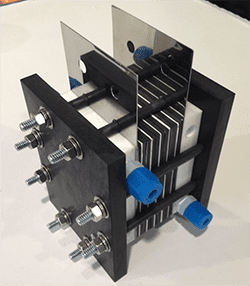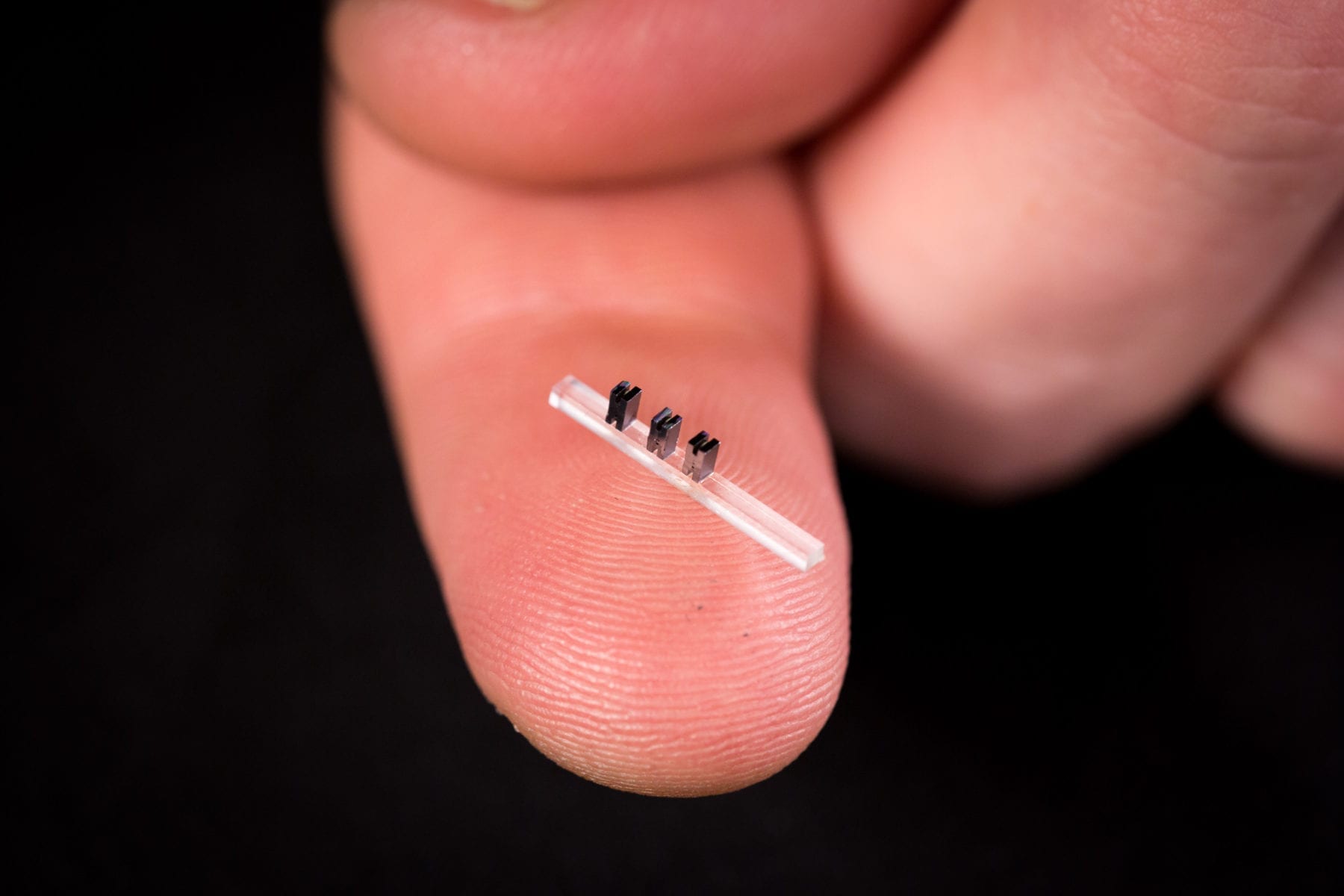
A major scientific breakthrough in the development of renewable energy sources and other important chemicals
The research team succeeded in producing 580 mg of gasoline per litre of cultured broth by converting in vivo generated fatty acids.
For many decades, we have been relying on fossil resources to produce liquid fuels such as gasoline, diesel, and many industrial and consumer chemicals for daily use. However, increasing strains on natural resources as well as environmental issues including global warming have triggered a strong interest in developing sustainable ways to obtain fuels and chemicals.
Gasoline, the petroleum-derived product that is most widely used as a fuel for transportation, is a mixture of hydrocarbons, additives, and blending agents. The hydrocarbons, called alkanes, consist only of carbon and hydrogen atoms. Gasoline has a combination of straight-chain and branched-chain alkanes (hydrocarbons) consisted of 4-12 carbon atoms linked by direct carbon-carbon bonds.
Previously, through metabolic engineering of Escherichia coli (E. coli), there have been a few research results on the production of long-chain alkanes, which consist of 13-17 carbon atoms, suitable for replacing diesel. However, there has been no report on the microbial production of short-chain alkanes, a possible substitute for gasoline.
In the paper (entitled “Microbial Production of Short-chain Alkanes”) published online in Nature on September 29, a Korean research team led by Distinguished Professor Sang Yup Lee of the Department of Chemical and Biomolecular Engineering at the Korea Advanced Institute of Science and Technology (KAIST) reported, for the first time, the development of a novel strategy for microbial gasoline production through metabolic engineering of E. coli.
The research team engineered the fatty acid metabolism to provide the fatty acid derivatives that are shorter than normal intracellular fatty acid metabolites, and introduced a novel synthetic pathway for the biosynthesis of short-chain alkanes. This allowed the development of platform E. coli strain capable of producing gasoline for the first time. Furthermore, this platform strain, if desired, can be modified to produce other products such as short-chain fatty esters and short-chain fatty alcohols.
The Latest Bing News on:
Gasoline production
- USA Increases Forecast For Oil Production In Azerbaijanon May 8, 2024 at 2:24 am
Production of oil and other liquid hydrocarbons in Azerbaijanthis year is predicted to be 610,000 barrels per day, Azernews reports. This figure is 10,000 barrels more than the previousforecast. This ...
- New Zealand's low gas production threatens energy security: ministeron May 8, 2024 at 12:22 am
Some large gas consumers are expressing concern about their ability to secure gas contracts due to New Zealand's significant reduction in gas production. According to the Gas Industry Co on Wednesday, ...
- Oil dips on rising US stockpiles, cautious supply expectationson May 8, 2024 at 12:03 am
Oil prices fell in Asian trade on Wednesday as industry data showed a pile-up in crude and fuel inventories in the U.S., a sign of weak demand, and cautious supply expectations emerged ahead of an ...
- EQT: Cementing Position As Low-Cost Gas Producer (Raising Target Price)on May 7, 2024 at 11:29 pm
EQT Corporation updated its 2024 guidance and announced the acquisition of Equitrans Midstream. See why I continue to rate EQT stock a strong buy.
- Gas Industry Co report shows material decline in gas productionon May 7, 2024 at 10:42 pm
Resources Minister Shane Jones says the low gas production figures are a hangover from the previous government’s policies that the Coalition Government will reverse.
- U.S. oil and gas production is booming. So are the industry’s donations to its GOP allieson May 7, 2024 at 12:48 pm
The biggest recipient of campaign donations from the industry isn’t Donald Trump or President Joe Biden, it’s a Texas House member who represents part of the Permian Basin.
- Oil prices edge lower after Russia signals OPEC+ production rise possibleon May 7, 2024 at 7:25 am
Oil futures edge lower as Russia indicates OPEC+ could consider raising crude output and Israel rejects a Gaza cease-fire proposal.
- Will OPEC+ Extend Oil Production Cuts?on May 6, 2024 at 1:00 pm
OPEC+ is likely to keep oil production unchanged in June due to stable inventories and prices, but may rescind some previous cuts to avoid losing market share to non-OPEC producers.
- Azerbaijan: BP launches new oil production facility, buying Baku budgetary breathing roomon May 6, 2024 at 7:38 am
New facility stabilizes declining production at Azerbaijan’s oil largest field, while providing the EU with some natural gas.
- Brazil Seeks to Boost Gas Productionon May 5, 2024 at 11:30 pm
Talks are underway involving Argentina, Bolivia and Paraguay, exploring several routes for importing Vaca Muerta gas.
The Latest Google Headlines on:
Gasoline production
[google_news title=”” keyword=”gasoline production” num_posts=”10″ blurb_length=”0″ show_thumb=”left”]
The Latest Bing News on:
Microbial gasoline production
- As the Arctic tundra warms, soil microbes likely will ramp up COon May 6, 2024 at 8:30 am
Experiments in mini greenhouses show how the tiny organisms lurking underground in a "sleepy biome" could be a contributor to climate change.
- The surprising health benefits of dirton May 5, 2024 at 8:00 am
According to experts, since we’ve become a nation of “germaphobes,” we’re actually making ourselves sicker and, in fact, there are many health benefits to be gained by getting a bit, well, mucky.
- Turning the tide: Microbials empower farmers’ economic stability against climate shiftson May 4, 2024 at 12:11 am
Microbes play a crucial role in mitigating climate change impacts on agriculture, enhancing soil health, and promoting sustainable farming practices.
- European wine just had its worst growing season in 62 years. Climate change could make it worseon May 1, 2024 at 9:00 am
"Extreme climatic conditions and widespread fungal diseases severely impacted many vineyards worldwide, culminating in a historically low global wine production of 237 million hecto litres," the OIV ...
- Disturbing the Deep: New Research Reveals That Humans Have Intensely Impacted Earth’s Hidden Depthson April 28, 2024 at 9:30 am
The effects of human activities like greenhouse gas emissions and deforestation on the surface of Earth are well-documented. Recently, hydrology researchers at the University of Arizona have explored ...
- Human activities also greatly harm Earth's subsurface, not just the landmasson April 25, 2024 at 1:21 am
The impact of human intervention reaches hundreds of meters to several kilometers beneath the planet's surface into the deep subsurface.
- Superfood protein pulled out of thin air massively scales up productionon April 24, 2024 at 2:59 pm
The world's first commercial-scale factory for making nutrient-rich and versatile protein from air and sustainable energy has opened its doors in Finland, and the startup behind it aims to have its ...
- Yeast Fuel, Developed by Chula's Faculty of Science Soon to Expand Its Production for the Aerospace Industryon April 23, 2024 at 9:00 am
Researchers from Chulalongkorn University have made use of forage grass to feed microorganisms and convert the resulting fat into jet fuel. They aim to expand petroleum-based oil replacement ...
- Chula's Yeast Fuel to Expand Production for the Aerospace Industryon April 22, 2024 at 8:36 pm
The "Development of scaling-up technology for production of microbial lipid for biojet fuel synthesis" research project led by Prof. Dr. Warawut Chulalaksananukul and Asst. Prof. Dr. Chompunuch ...
- A microbial plastic factory for high-quality green plasticon April 9, 2024 at 5:13 pm
Moreover, many plastics are produced from crude oil, a non-renewable resource ... technology that effectively links microbial production and material development." More information: Microbial ...
The Latest Google Headlines on:
Microbial gasoline production
[google_news title=”” keyword=”microbial gasoline production” num_posts=”10″ blurb_length=”0″ show_thumb=”left”]










